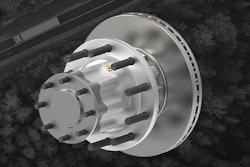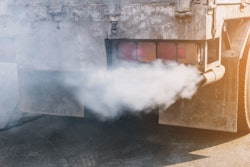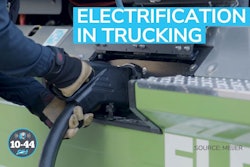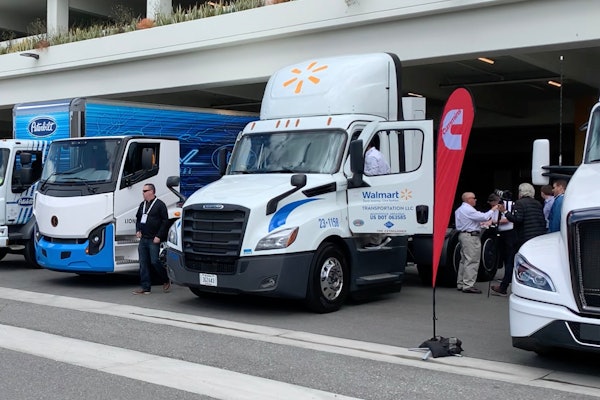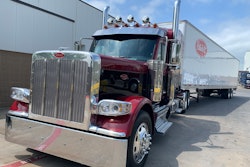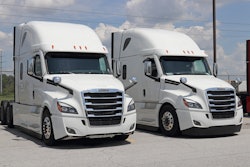Many – maybe too many – powertrain technologies exist today for equipment users to spec on trucks, and the emergence of electrification, hydrogen and other budding solutions will only add more options to the mix.
At the Technology & Maintenance Council Annual Meeting and Expo in Orlando Tuesday during an S.11 study group presentation, a panel of freight and green technology experts discussed the coming reality for trucking as its emissions levels are further scrutinized.
Corning Incorporated's Director of Emerging Technologies and Regulations Dr. Ameya Joshi noted that freight vehicles account for about 4% of greenhouse gas (GHG) emissions globally, and long haul trucks account for about half of particulate matter and NOx emissions.
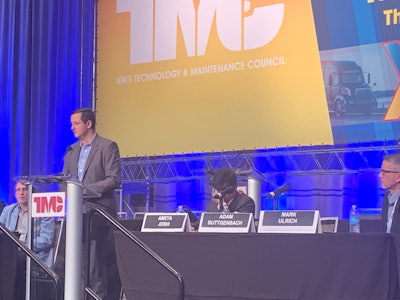 Adam Buttgenbach, PepsiCo director of fleet engineering and sustainability, said PepsiCo has deployed battery electric vehicles, renewable natural gas and renewable biodiesel trucks in its middle mile operations and electric delivery vans, electric box truck and electric tractors in its last mile business.
Adam Buttgenbach, PepsiCo director of fleet engineering and sustainability, said PepsiCo has deployed battery electric vehicles, renewable natural gas and renewable biodiesel trucks in its middle mile operations and electric delivery vans, electric box truck and electric tractors in its last mile business.
Electrification isn't as simple as it sounds, especially in long haul, Joshi said, adding that a greater than 1 megawatt hour battery pack would be needed to power a truck for 500 miles: a power level on par with the usage of an average U.S. household in a month.
"There is no silver bullet," Joshi said. "We have to keep working on all technologies... if we are going to effectively decarbonize the transportation sector."
PepsiCo, with more than 80,000 units, is among the largest private fleets in the country – a transportation force that includes biodiesel, electric, natural gas and many others. Pepsi has a goal of net zero emissions by 2040. Prior to 2010, Adam Buttgenbach, PepsiCo director of fleet engineering and sustainability, said the company started looking at improving its efficiency, spec'ing things like low rolling resistance tires and gravitating to lighter-weight vehicles.

